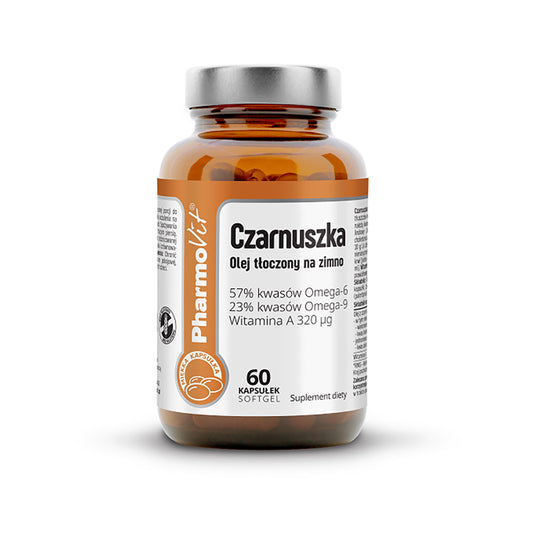
Why prefer black cumin oil?
Share
Black cumin is a well-known spice and medicinal plant in the Middle East and Asia for thousands of years. According to stories, even Cleopatra in ancient Egypt relied on black cumin seeds pressed into oil. Maybe it's the secret of her beauty, but there really are many types of black cumin oil and it shouldn't be called magic oil.
You can come across black cumin under many names. The plant is known as cumin (Nigella sativa, Black Seed, Black Cumin Seed). It is a modest-looking and truly valued medicinal plant that contains 100 bioactive substances. So it's no wonder that we give it some column space.
Where does black cumin grow?
Black cumin is a plant of the buttercup family and it is produced in the countries of the Middle East and Asia. Flowering black cumin, like a poppy, produces seed pods where the aromatic black seeds develop.
In our selection you can find seeds of the highest quality black cumin plants and of course in organic quality. In this case, no harmful pesticides are used in cultivation and the process from seeds to oil is as natural as possible.
Benefits of black cumin oil
Black cumin oil has a favorable effect on blood sugar regulation and may also help with the challenges brought by the cold season. In the West, black gum is a newer entrant, but has already gained great popularity due to its benefits. As a natural product, it is incomparable.
Black cumin therefore contains 100 bioactive substances. These include, for example, skin-protecting linoleic acid (omega-6) and the essential oil, thymoquinone. It is believed to be the background of black cumin's well-being-supporting effects in particular. The seeds contain myristic, palmitic, palmitoleic and oleic acids, B group vitamins, calcium, iron, copper, zinc and phosphorus. To name a few.
No pesticides are used in the production of black cumin oil from the grass root. The oil is produced using a particularly careful cold pressing method (below 45°C), which preserves all important nutrients. Gently produced black cumin oil contains a large amount of polyunsaturated fatty acids and a lot of vitamin E in its natural form. The taste of Egyptian black cumin is sensually mild, which is why it is highly valued in terms of quality.
Use of black cumin oil internally
The Bio365 selection includes black cumin oil in both oil and capsule form. When you use the oil both internally and externally, you double the benefit.
Enjoy 1-2 teaspoons of black cumin oil per day as it is, or add a small drop to salads or drinks. Black cumin oil is not suitable for heating, so if you don't like consuming the oil as it is, choose the capsule form. However, the oil is mild in taste.
The nutrients contained in black cumin support well-being and health in many ways, so it is recommended to consume it internally.
Use of black cumin externally
Black cumin oil is also excellent when used externally, for example in skin and hair care.
In skin care, black cumin oil is recommended to be used especially for very dry, irritated and allergy-prone skin. In terms of its effects, black gum is an anti-inflammatory, really effective antioxidant, thanks to which the sensitive hippie gets protection from the harmful effects of the environment (such as air pollution).
The nutritionally valuable black cumin oil nourishes, moisturizes and protects the skin when used externally. The linolenic acid it contains renews the lipid layer of the skin, gently protecting it.
Black cumin oil, which contains polyunsaturated fatty acids, is also very popular when used as a hair and scalp treatment oil. It has been found to help those suffering from hair loss and thinning hair. Try also in cuticle care!
Black cumin oil, which has antiseptic and skin-healing effects, may help those suffering from acne, rashes, skin infections, psoriasis and hemorrhoids. Black gum is also incomparable in the treatment of scars.




